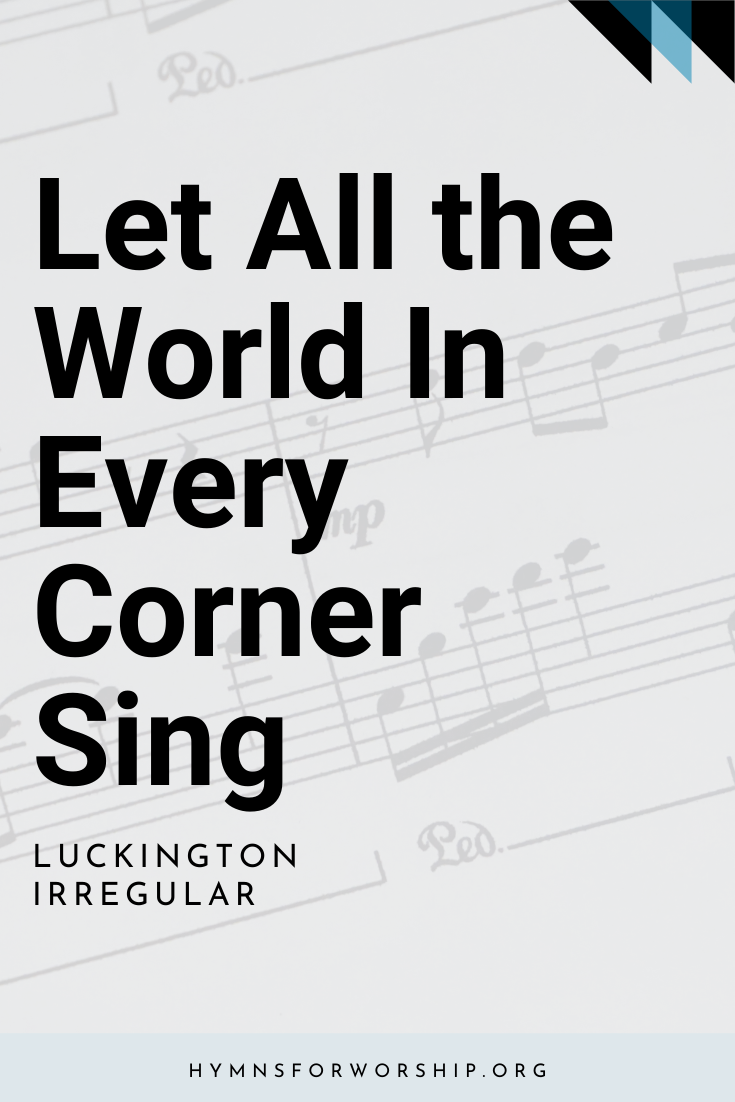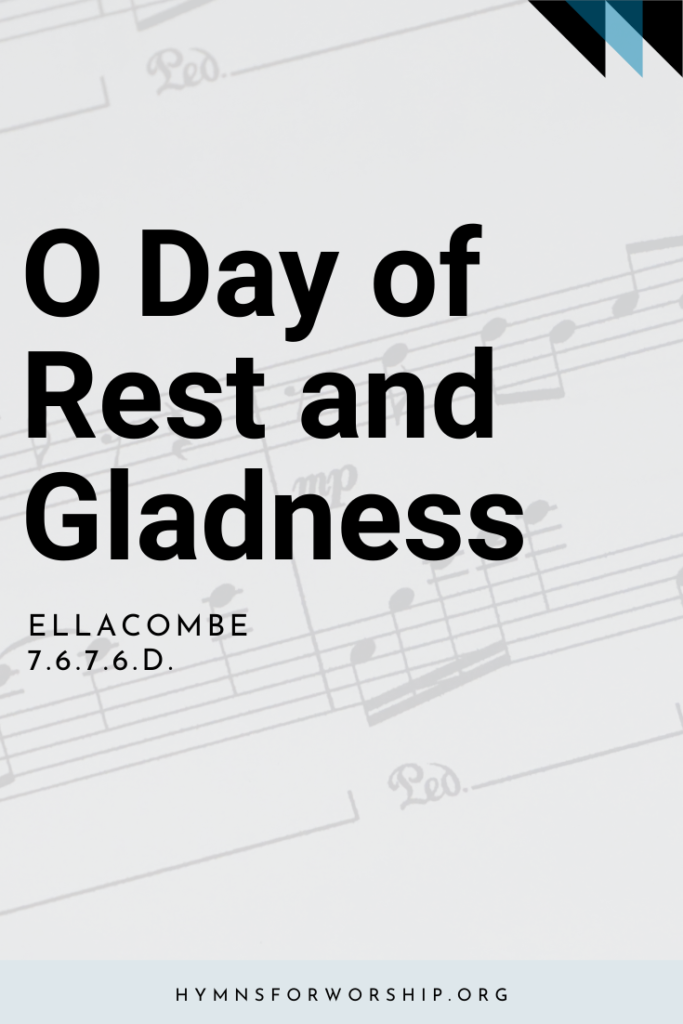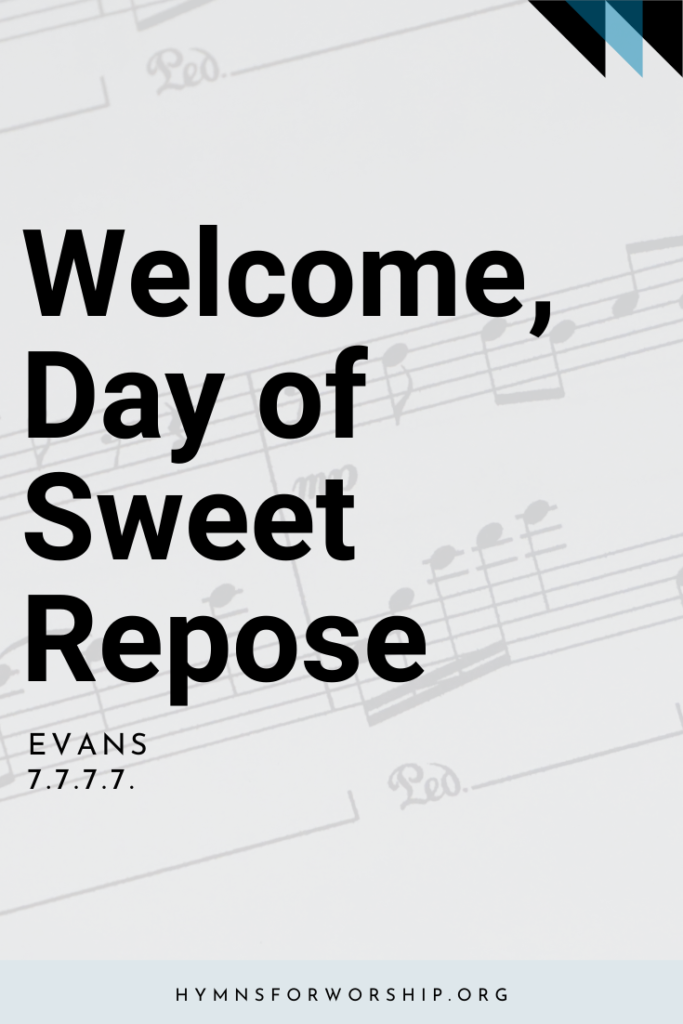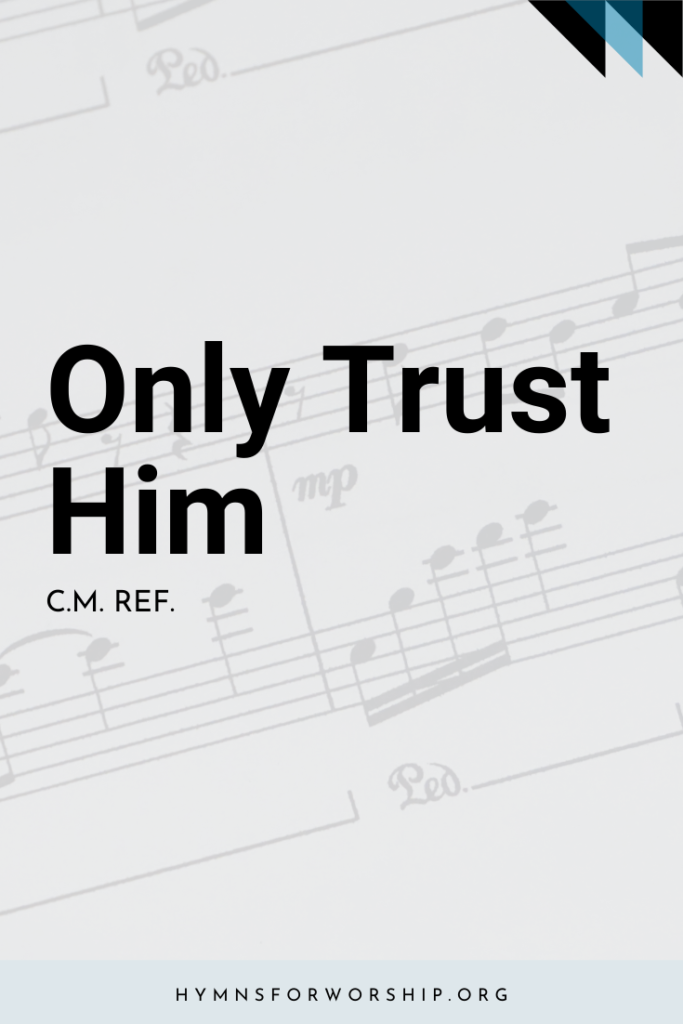WORSHIP >> Adoration & Praise
SDAH 9
Let all the world in every corner sing,
My God and King!
The heavens are not too high,
His praise may thither fly;
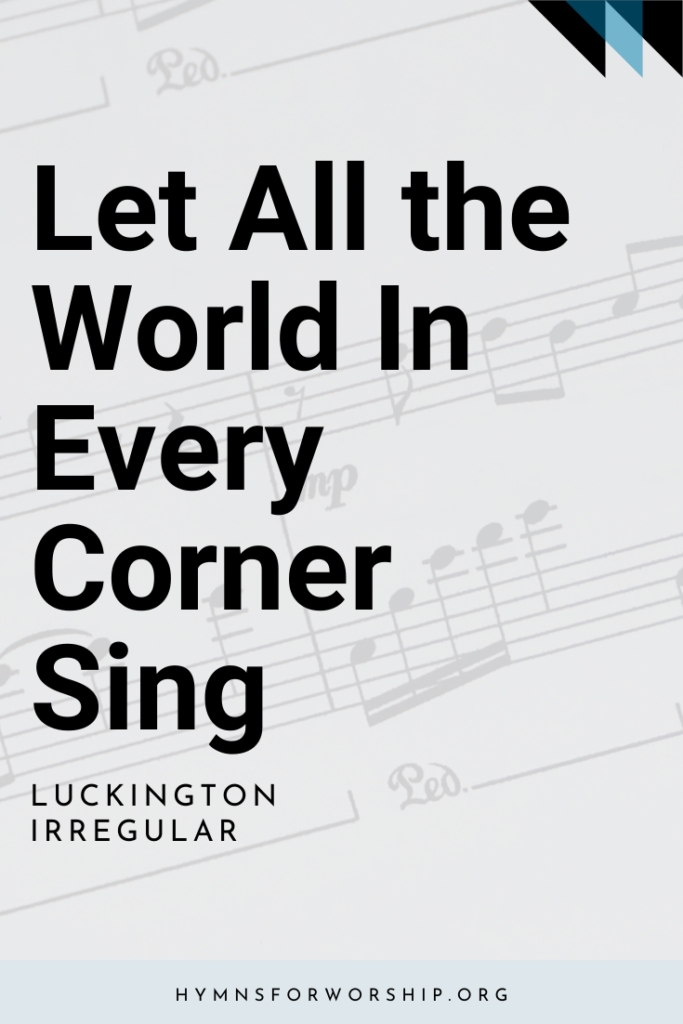

Text
1
Let all the world in every corner sing,
My God and King!
The heavens are not too high,
His praise may thither fly;
The earth is not too low,
His praises there may grow.
Let all the world in every corner sing,
My God and King!
2
Let all the world in every corner sing,
My God and King!
The church with psalms must shout,
No door can keep them out;
But, above all, the heart
must bear the longest part.
Let all the world in every corner sing,
My God and King!

Hymn Info
Author
George Herbert (1593-1633)
Copyright
Used by permission of the Executors of the late Dr. Basil Harwood
Hymn Tune
LUCKINGTON
Metrical Number
Irregular
Composer
Basil Harwood (1859-1949)
Theme
ADORATION & PRAISE
Hymn Score
Piano Accompaniment
Notes
Get to know the hymns a little deeper with the SDA Hymnal Companion. Use our song leader’s notes to engage your congregation in singing with understanding. Even better, involve kids in learning this hymn with our homeschooling materials.
This is one of the three hymns in SDAH taken from Herbert’s The Temple (see SDAH 243 and 247). It was entitled “Antiphon,” denoting that it is in two parts, refrain and verse, to be sung alternately, by two different groups. The refrain was to be sung by the full choir, and the verse divided in halves, the first to be sung by those on the south side of the choir (decani), and the other half by those on the north side (cantori). The hymn can be sung, of course, with the refrain by the congregation, and the verse in full by the choir, which would also be an antiphon; or it can be shared between two halves of the congregation.
The hymn echoes the invitation of part of Psalm 98:4-6: “Make a joyful noise unto the Lord, all the earth: make loud noise, and rejoice, and sing praise. Sing unto the Lord with… the voice of a psalm… Make a joyful noise before the Lord, the King.”
George Herbert was born April 3, 1593, at Montgomery Castle, central Wales; be became a Fellow of Trinity College, Cambridge, 1615. We are indebted to Isaac Walton for writing about the lives of some of his friends, including Herbert. The following quotes gives us a clear picture. At age 12 in Westminster School, London: “The beauties of his (Herbert’s) pretty behavior and wit shined and became so evident and lovely in this, his innocent age, that he seemed to be marked out for piety and to become the care of heaven and of a particular angel to guard and guide him.” At age 15 at Cambridge he was “perfect in the learned languages, and especially the Greek tongue,” and was made university orator. A favorite of King James I, he was ordained in 1626 and served the Leighton, Huntingdonshire, until hit by an illness in 1629. Appointed rector of St. Andrew’s, Bemerton, in 1630, he stayed there three years until his death on March 1, 1633, at age 40.
Herbert was a good musician and often would go to the cathedral at Salisbury, only a few miles away, to hear the great music. Then he would return home to have a “sing” with friends and what they called a “private musick meeting.” He would set one of his poem to music, then accompany himself on the lute or viol. The parsonage was in a shambles; he restored it at his own expense, engraving on the mantel these words:
TO MY SUCCESSOR
If you chance for to find
A new house to thy mind,
And built without thy cost;
Be good to the poor,
As God gives thee store,
And then my labor’s not lost.
Walton also records how the people felt about Herbert’s ministry: “Some of the meaner sort of his parish did so love and reverence My. Herbert that they would let their plow rest when his bell rung to prayers, that they might also offer their devotion to God with him, and would then return back to their plow.”
Lord David Cecil said to him: “Born with an exquisitely Christian disposition, all humility and spontaneous Christian love, he cultivated it by a lifetime of devotion. Christ was to him as real a personality as any human being. His life story is the history of his revelation to Him.”
The tune LUCKINGTON is named after a village in the northwest part of Wiltshire, England. He tune was written for these words and included in the Oxford Hymn Book, 1908, for which Basil Harwood was the musical editor. Born on April 11, 1859, at Woodhouse, Gloucestershire, England, Harwood was educated at Charterhouse School and Trinity College, Oxford. Beginning in 1878, he served as organist three years at Trinity College, four years at St. Barnabas, Pimlico, five years at Ely Cathedral, and for 17 years at Christ Church, Oxford, during which time he completed the degree of D.Mus. He also held the positions of precentor of Keble College, sonductor of the Oxford Bach Choir, and choragus (chorus leader) of the University of Oxford. In 1909 he returned to Woodhouse, retired, and spent the next 40 years composing sacred service music, Communion setting, anthems, cantatas, and organ works. Of the more than 90 hymn tunes we wrote, only are few are still in use. He died at London on April 3, 1949. SDAH uses his THORNBURY at No. 351 for “Thy Hand, O God, Has Guided.”

